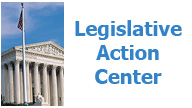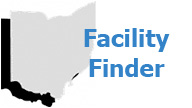The Academy of Senior Health Sciences, Inc. (formerly The Ohio Academy of Nursing Homes, Inc.) seeks to provide public education and awareness initiatives to the long-term care community in Ohio. Our membership represents a true cross-section of the skilled nursing facility profession, from small sole proprietorships to larger Ohio-based multi-facility companies, as well as those businesses that service our industry. Through our public education and awareness efforts, the Academy brings the collective influences of the members together into a single voice on vital issues affecting our profession.
Founded in 1966, the Academy then identified one of its core purposes as "To foster a spirit of goodwill among those persons engaged in the nursing home industry, to promote ethical practices in their relationships with each other, their employees, and the general public to the end that all interests may be served fairly..." Though the organization has undergone several transformations over the years, most notably in 2011, its dedication and commitment to Ohio's most frail and elderly remains the same.

|
|



